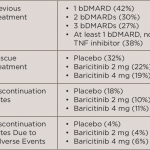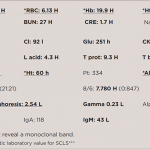WASHINGTON, D.C.—New insights into maintenance therapy for patients with vasculitides were covered by several speakers at the 2016 ACR/ARHP Annual Meeting abstract session titled, Vasculitis I: Novel Approaches to Therapy. Expert Hubert de Boysson, MD, MSc, of the Internal Medicine Department at Caen University Hospital in France, led discussion on new therapies for patients with…









